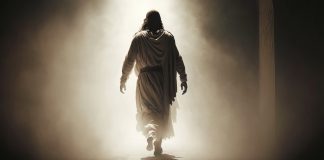Any mountain can be climbed
There is nothing we can do. Thousands of dreams ended with this short sentence. In the face of too great an obstacle or tragedy, giving up seems the only option left. But there are some people who love what they do so much that nothing stops them from adding an unless. This word breeds the courage and creativity in finding solutions, and then...
Ready for the return of Jesus
"Look, I am coming soon!" (Revelation 22:12) This is a promise whose fulfilment has been awaited by generations of believers who have pinned all their hopes on Jesus's return in glory. But what does "soon" mean? And what should we do to avoid being so preoccupied with the signs that we neglect other essential aspects of our preparation?
Sacred writings
How do the Christian Scriptures differ from non-Christian sacred writings (the Quran, Vedas, Dharmas, Book of Mormon, etc.)?
The “Siret Customs” Paradise
On February 27, 2022, I exchanged my pastor’s suit and tie for an ADRA volunteer vest at the Siret Customs point on the Romanian border.
Love and the second “Yes!”
They have read that love lasts for two or three years, and although they’ve gathered every possible argument why it wasn't the case for them, they couldn't get the possibility out of their minds altogether.
Small changes and their remarkable impact
Changing habits is like tightrope walking: an exercise in which the balance is always fragile, but it is the small changes that pave the way to truly remarkable results.
COVID-19: Hope overcomes the fear of the unknown
In the spring of 1936, the members of the Lykov family made a decision that would change their lives forever: they disappeared into the Siberian taiga, completely isolating themselves from the world for the next 40 years.
On the side of God and logic
Benjamin Solomon Carson is the famous American neurosurgeon who was the first to successfully separate conjoined twins in 1987.
It all adds up
We try to protect them as much as we can from the evil and the ugliness in this world, maybe because we know that indifference does not fit in their heart as easily as it has made a nest in ours. And maybe that's why children are the ones who give us amazing lessons of sacrifice and altruism.
The end of the world: on the list of convictions that frighten us
A good survey of people's thoughts on the end times would not seek to find out whether people believe the world will end or not. Rather, it would seek to know what their thoughts are on when and how the end will come. Regardless of the source of their belief—religious or secular—most people have come to see the idea of the end of...
Mother Teresa, a little nun with high ideals
She refused the comfort and tranquillity so desired and sought after today because she saw the needs of the simple people and she unwittingly sparked a revolution of love. She went down in history, not with any title of nobility, but simply as Mother Teresa.
How I came to believe
I was a pagan as a child. Not by choice, but as a consequence of lacking any access to the Word of God. In the 1980s Romania, catechizing an Orthodox child (whose parents were members of the Communist Party) was a highly unlikely event Pavlik Morozov’s myth, the hero-child that denounced his own father, generated caution.


























